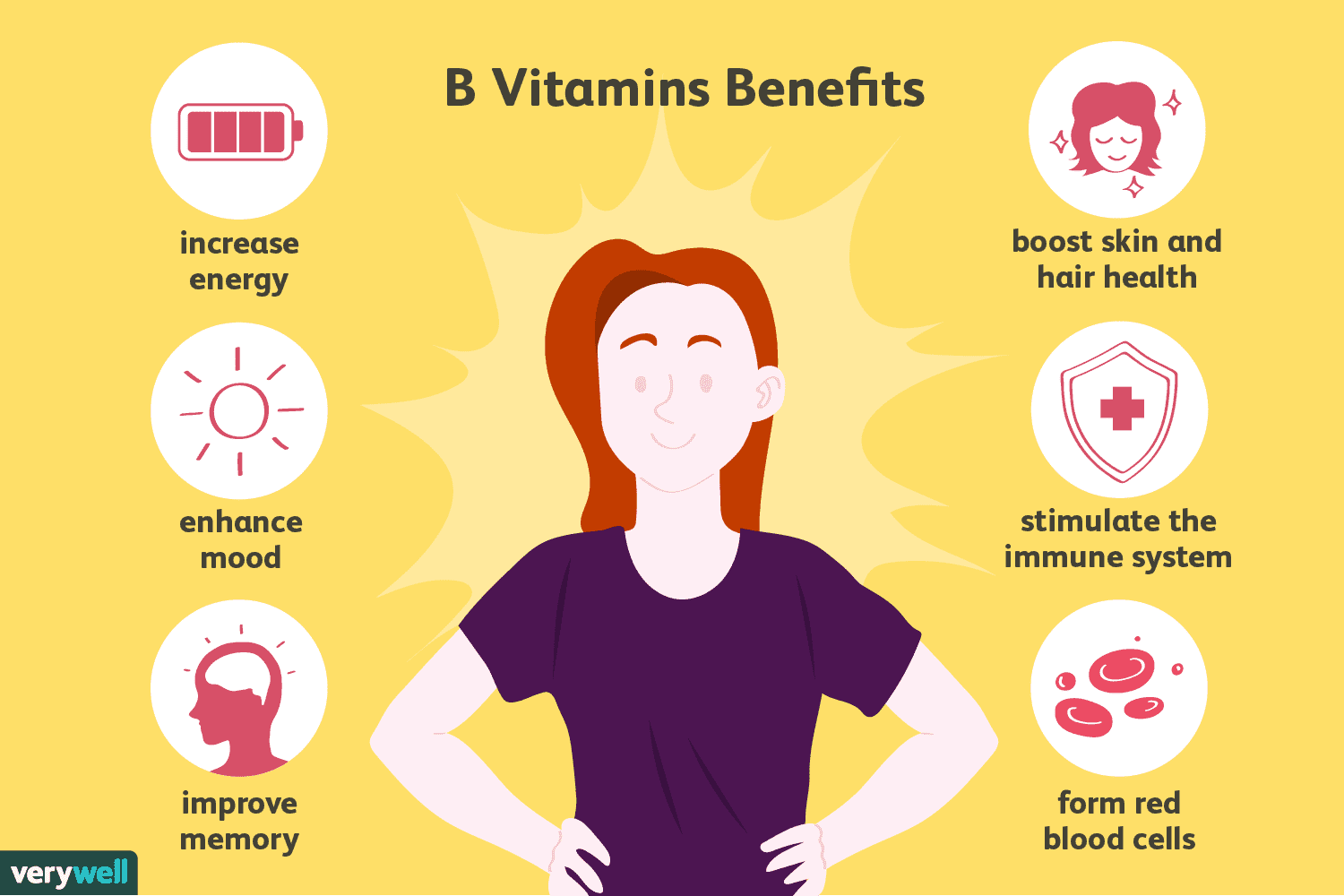The Top 5 Health Benefits of Vitamin B12, Based on Science
Vitamin B12, also called cobalamin, is an essential vitamin for your body needs but cannot produce.
It is found naturally in animal products, but is also added to certain foods and is available as an oral supplement or injection.
Vitamin B12 has many functions in your body. It is compatible with the normal function of nerve cells and is necessary for the formation of red blood cells and the synthesis of DNA. As per experts’ recommendation, daily intake (RDI) is 2.4 mcg, although it is higher for pregnant women or those who are breastfeeding.
Vitamin B12 can benefit your body in powerful ways, such as by boosting your energy, improving your memory, and helping prevent heart disease.
Here Are 5 High-Level Health Benefits Of Vitamin B12, All Based On Science
1. Help with the Formation of Red Blood Cells and the Prevention of Anemia
Vitamin plays a vital role in helping your body make red blood cells.
Low levels of vitamin B12 cause a reduction in the formation of red blood cells and prevent them from developing properly. Normally red blood cells are small and round, while they become more extensive and typically oval in cases of vitamin B12 deficiency.
Due to this larger and irregular shape, red blood cells cannot pass from the bone marrow into the bloodstream at an adequate rate, which causes megaloblastic anemia.
When you have anemia, your body does not have enough red blood cells to carry oxygen to your vital organs.
Vitamin B12 participates in the formation of red blood cells. When the levels of vitamin B12 are too low, the production of red blood cells is altered, causing megaloblastic anemia.
2. It Can Prevent Important Birth Defects
Adequate levels of vitamin B12 are crucial for a healthy pregnancy.
Studies show that the brain and nervous system of a fetus require sufficient levels of vitamin B12 from the mother to develop properly.
Deficiency of vitamin B12 in the early stages of pregnancy can increase the risk of birth defects, such as neural tube defects. Also, maternal vitamin B12 deficiency can contribute to premature birth or spontaneous abortion.
According to the research found that women with vitamin B12 levels below 250 mg / dL were three times more likely to give birth to a child with congenital disabilities, compared to those with adequate levels.
For women with vitamin B12 deficiency and levels below 150 mg / dL, the risk was five times higher compared to women with levels above 400 mg / dL.
3- It Can Reduce Your Macular Degeneration
Vitamin B12 can help prevent the risk of age-related macular degeneration.
Researchers believe that vitamin B12 supplementation can lower homocysteine, a type of amino acid found in the bloodstream.
A study involving 4,000+ women aged 40 and older concluded that supplementation with vitamin B12, along with folic acid and vitamin B6, can reduce this risk.
The group that received these supplements for five years had fewer cases of macular degeneration, as compared to the other group. The rate of developing any form of the condition was 37% lower, while it was 43% lower for the more severe types.
Ultimately, more studies are needed to fully understand the role of vitamin B12 in the promotion of visual health and the prevention of macular degeneration.
4- It Can Improve the Mood and Symptoms of Depression.
Vitamin B12 can reduce your depression and improve your mood.
The effect of vitamin B12 on mood is not yet fully known. Vitamins play a vital role in the synthesis and metabolism of serotonin, a chemical responsible for regulating mood.
Therefore, vitamin B12 deficiency can lead to a decrease in the production of serotonin, which can cause a depressed and unhappy mood.
Studies and research support the use of vitamin B12 supplements to improve the symptoms of depression in people with vitamin B12 deficiency.
A study in people with depression and low levels of vitamin B12 found that those who received both antidepressants and B12 were more likely to show improved depressive symptoms, compared to those who received only antidepressants.
Another study found that vitamin B12 deficiency was associated with twice the risk of severe depression.
Also, high levels of vitamin B12 have been linked to better treatment outcomes and a higher likelihood of recovery from a major depressive disorder.
Although vitamin B12 supplements may help improve mood and depression in people with deficiency, research currently does not suggest that they have the same effect on people with normal B12 levels.
5- It Can Give You an Energy Boost.
B12 energy patch supplement has been touted for a long time as the reference product for a surge of energy.
All B vitamins play an important role in your body’s energy production, although they do not necessarily provide energy on their own.
Currently, there is no proof to suggest that vitamin B12 supplements can increase energy in those with sufficient levels of this vitamin.
Since vitamin B12 is soluble in water, your body can not store additional amounts. Any excess passes through your body and is eliminated when you urinate.
In other hands, if you have a significant deficiency of vitamin B12, taking a supplement or increasing your intake will probably improve your energy level.
One of the most common beginning signs of vitamin B12 deficiency is fatigue or lack of energy.
Vitamin B12 is involved in the production of energy in your body. Taking a supplement can improve your energy level, but only if you have a deficiency of this vitamin.
Abhishek Kumar is the Founder of HealthyTips4us and a Health SEO & Digital Strategy Expert with over 7 years of hands-on experience in the YMYL (Your Money or Your Life) sectors. With a Master’s degree in Biotechnology, he specializes in driving authority for content related to IVF, Dermatology, and Specialized Wellness. His mission is to translate complex, scientific data into trustworthy, actionable health advice.
Read More



